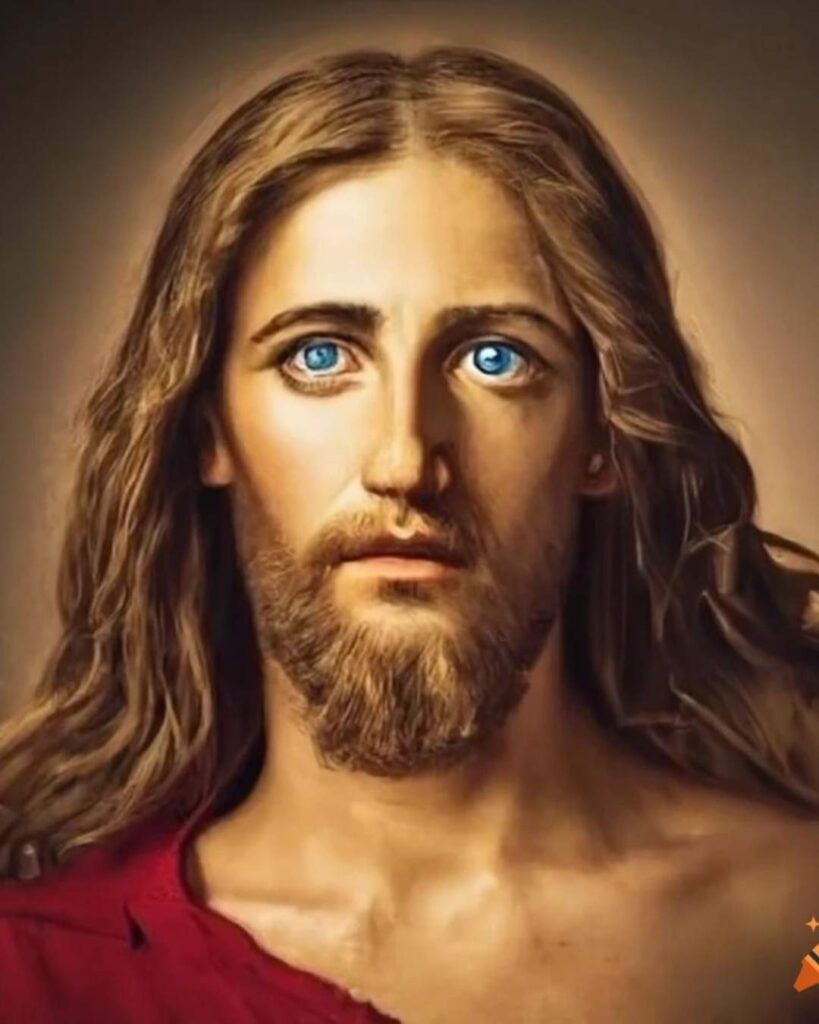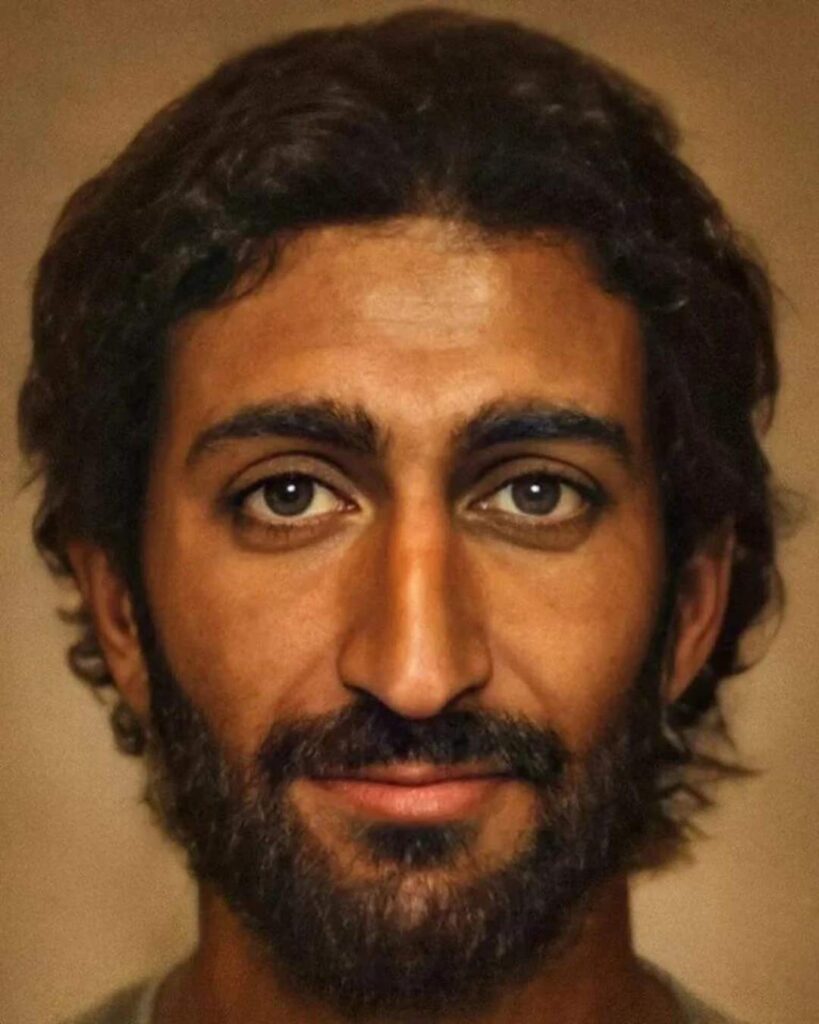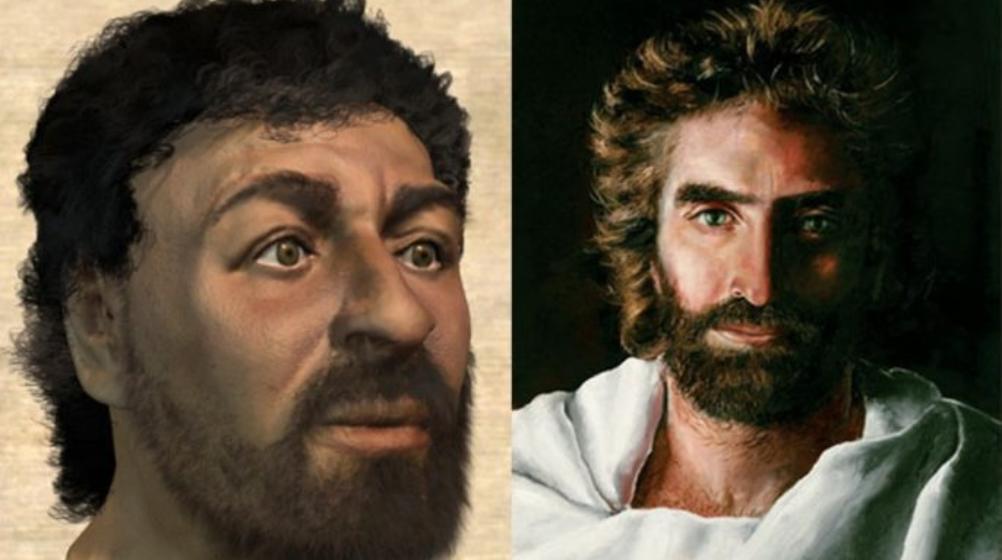The depiction of Jesus Christ throughout history, particularly in the Catholic Church, often reflects a white, European male with striking blue eyes—a portrayal popularized during the Renaissance.

However, contemporary scholarship and digital artistry are challenging these traditional images, bringing us closer to what Jesus may have actually looked like based on his historical and geographical context.
Bas Uterwijk, a Dutch photographer and digital artist, embarked on a unique project using advanced technology to recreate the face of Jesus. Utilizing Artbreeder, a machine learning platform, Uterwijk aimed to generate an image that more accurately reflects the appearance of a man from the historical region of Palestine.
The outcome of Uterwijk’s efforts reveals a stark contrast to the conventional depictions of Jesus. He meticulously adjusted the facial features, including hair and beard styles, to align with what might have been common in Jesus’s time and region.

Uterwijk also drew inspiration from diverse sources, including Byzantine art, Renaissance paintings like Leonardo da Vinci’s ‘Salvator Mundi,’ and the Turin Shroud, as well as Fayum mummy portraits which pushed the boundaries of Renaissance aesthetics.
Historical experts, such as Joan Taylor, author of “What Did Jesus Look Like,” suggest that Jesus would have had olive skin, black hair, and brown eyes—common traits among the people of Judea and Egypt at that time. Taylor emphasizes that the traditional images of Jesus with long hair and fair skin are more reflective of later artistic conventions rather than historical accuracy.
Richard Neave, a forensic facial reconstruction specialist, also contributed to the reimagining of Jesus’s appearance. He created a model of a first-century Judean man, proposing a stockier build, short hair, dusky skin, and an olive complexion—traits that would likely have been typical of Jesus’s contemporaries.

These new insights into Jesus’s appearance encourage a rethinking of how iconic figures are represented across different cultures and epochs. Sharing this evolving understanding can foster meaningful conversations about authenticity, representation, and history.





y’all are idiots concerning Jesus’s looks. Study some more.He was white if anything!!!!!!!